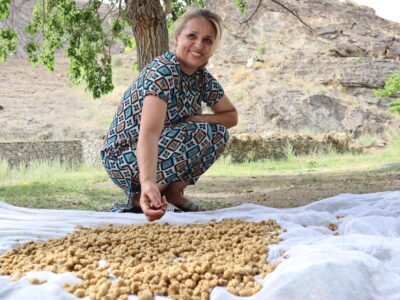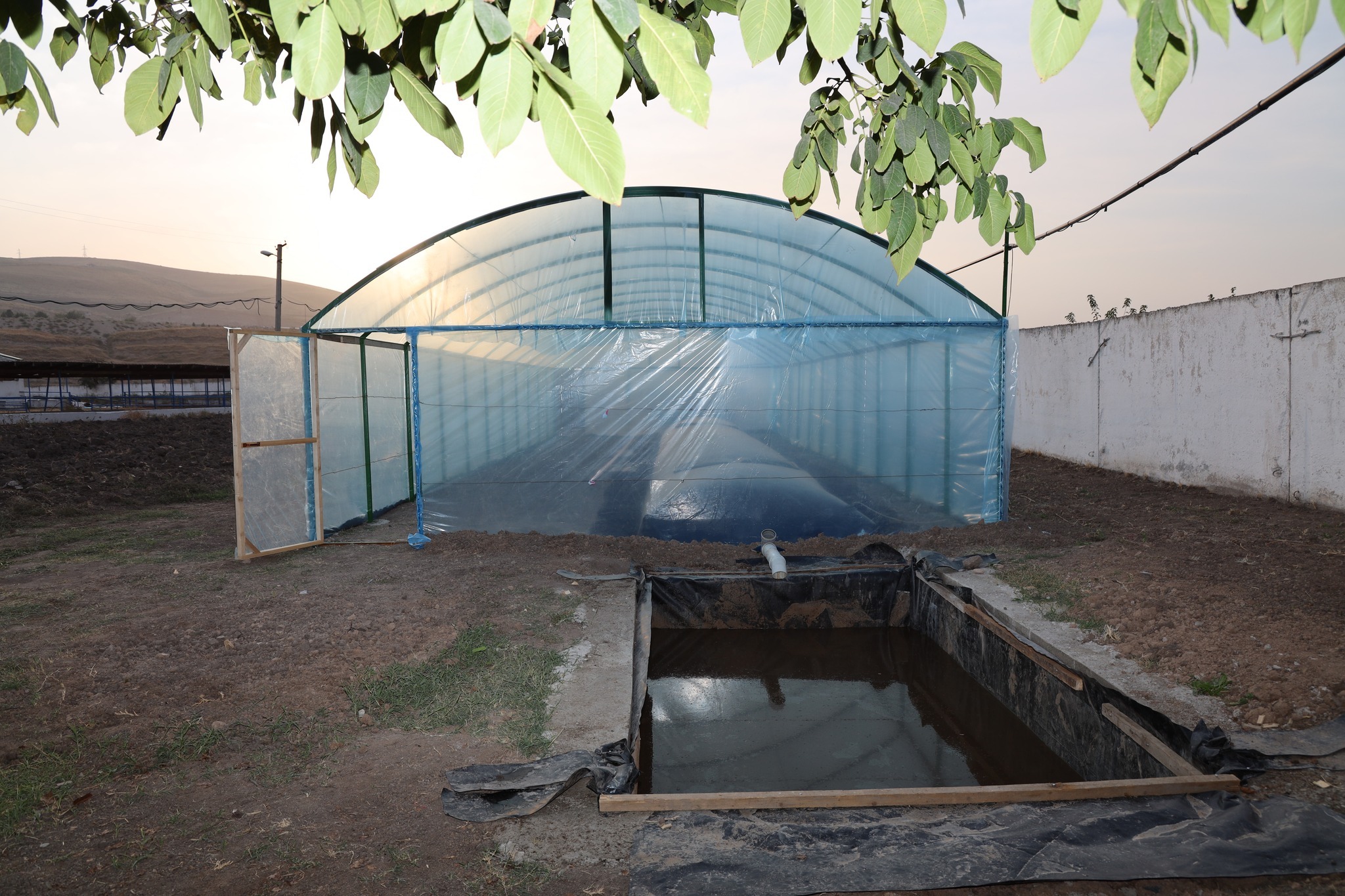
How a simple technology is boosting agriculture, empowering women, and fighting climate change.
Top Takeaways:
- The Market Driven Rural Development (MDRD) Activity, funded by USAID and led by ACDI/VOCA, introduced biodigester technology to rural communities in Tajikistan, transforming livestock manure into clean energy and organic fertilizer and boosting sustainable rural development.
- Biodigester use has increased farm productivity, provided reliable energy, and freed women from time-consuming chores, leading to increased empowerment and improved quality of life.
- The technology significantly reduced greenhouse gas emissions, with 1,000 metric tons of CO₂ emissions cut, contributing to Tajikistan’s climate targets and promoting sustainable agricultural practices.
5 Minute Read
Just a year ago, a quiet change began in the farmlands of Tajikistan. For the first time, biodigester technology was introduced to rural communities, transforming livestock manure into clean energy and organic fertilizer. This pioneering effort was led by the USAID-funded Market Driven Rural Development (MDRD) Activity, in partnership with a local agricultural consulting organization, Neksigol Mushovir.
What is a biodigester? Biodigesters use a high-quality hybrid reactor digester technology for processing livestock manure. The digester processes manure mixed with water to produce biogas and biofertilizer, and, in large-scale installations, the produced biogas is converted into electricity. The technology was developed by Sistema Bio, one of the world’s most renowned biodigester manufacturers with coverage of more than 20 countries.
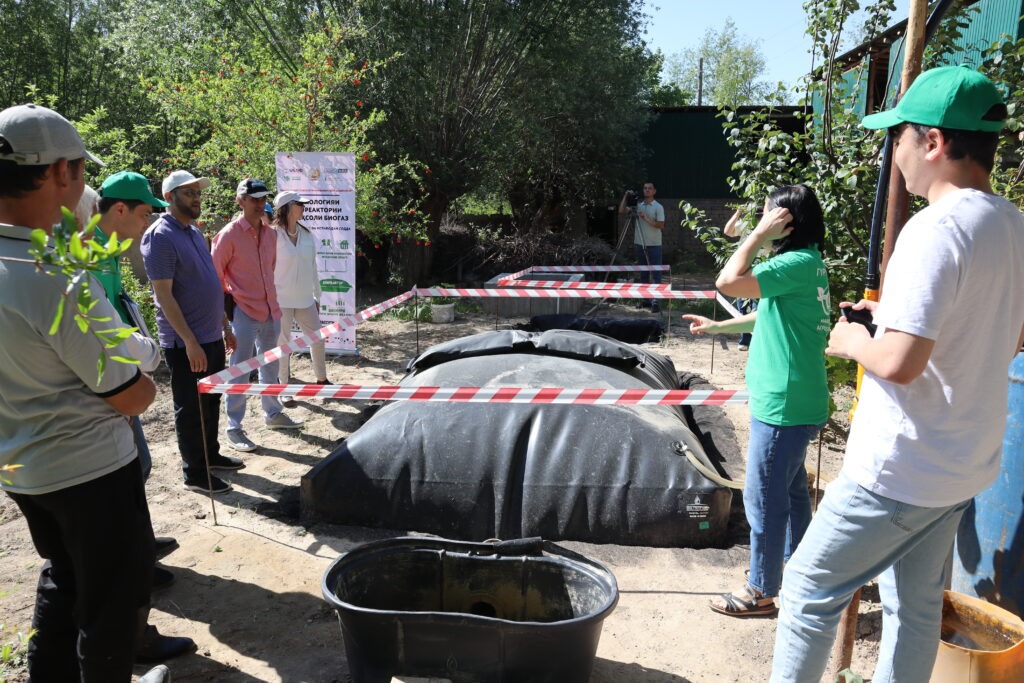
The biodigesters—imported from India and adapted for Tajikistan’s unique conditions—marked a milestone for the country, making it a leader in sustainable rural development. By December 2024, eight biodigesters of varying sizes were up and running across seven districts. The results? 2,600 cubic meters of biogas produced, 240,000 liters of organic fertilizer created, and 1,000 metric tons of CO₂ emissions cut in just a few months.
Numbers only tell part of the story. From boosting farm productivity to freeing women from time-consuming chores, the impact has rippled through households and farmlands alike. Let’s break down five key ways biodigesters are reshaping life in Tajikistan:
1. Biofertilizer: Fertilizing the Future
For farmers, healthy soil is everything. When applied to crops, biofertilizer not only enriches the soil but also boosts yields. Local farmer Shavkat Sobitov, from Bobojon Ghafurov district in the north part of the country where we installed our first biodigester, is especially enthusiastic. “It’s as if the land is breathing again,” he said.
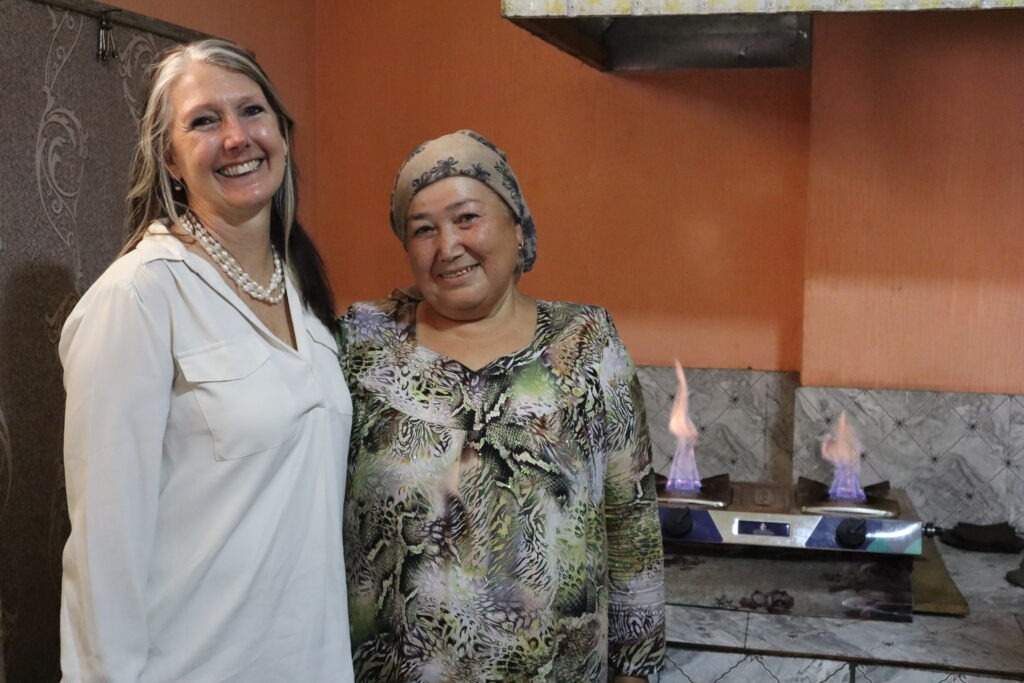
In the same district, cotton fields treated with biofertilizer from our second biodigester grew an average of 20 centimeters taller and produced 15 to 20 percent more yield than untreated land.
With the cost of chemical fertilizers rising, this natural alternative is a lifeline for smallholder farmers. The shift also speaks to a larger movement—farmers embracing sustainable practices to secure the future of their land.
2. Gas and Electricity: From Manure to Megawatts
In rural Tajikistan, energy isn’t always reliable. During winter, power cuts are common. Biodigesters provide an elegant solution—manure mixed with water goes in, and biogas comes out, ready to fuel stoves, heaters, and even small generators. Instead of bringing manure into the home, households use a pump with gas.
Zebo Haydarova, from Norak in the south part of the country, said, “With biogas, we power our kitchen; we have gas now for around eight to 10 hours a day. We save money every month.”
For larger installations, excess biogas is converted into electricity. This has proven invaluable for farms operating machinery like water pumps.
3. More for Family, Less for Labor
Manure management has long been a household chore, with women bearing the brunt of the work—drying, shaping, and stacking manure for use as fuel. It’s labor-intensive, dirty, and time-consuming.
With biodigesters, the change is tangible. Ms. Haydarova, of Norak, said, “My daughters and daughters-in-law sometimes didn’t know what to prioritize at home – running regular errands or drying manure. Thankfully, now manure-making is a memory.”
This newfound freedom is more than a convenience—it’s empowerment. Young women now have space for education, and mothers are reclaiming hours.
4. Greenhouse Gases Cut
Agriculture is one of Tajikistan’s largest sources of emissions, accounting for about 39 percent of national greenhouse gas emissions (Climate Watch 2021), with enteric fermentation, manure management, and synthetic fertilizer leading the charge. Biodigesters tackle all problems at once, capturing methane and converting it into energy.
By December 2024, biodigesters reduced emission of 1,000 metric tons of CO₂ equivalent greenhouse gas. That is equal to preventing the emission of CO₂ by 1,000 cars running 8,000 km each.
“The long-term potential is immense,” saidMahinakhon Suleymanova, Neksigol Mushovir Chair. “If scaled nationwide, biodigesters could play a critical role in meeting Tajikistan’s climate targets.”
5. Managing Manure: From Burden to Benefit
For large-scale farms, manure isn’t just a byproduct—it’s a logistical nightmare. Piles accumulate quickly, posing health risks.
Biodigesters offer a practical solution. By turning excess manure into energy and fertilizer, farms are eliminating waste while generating new revenue streams.
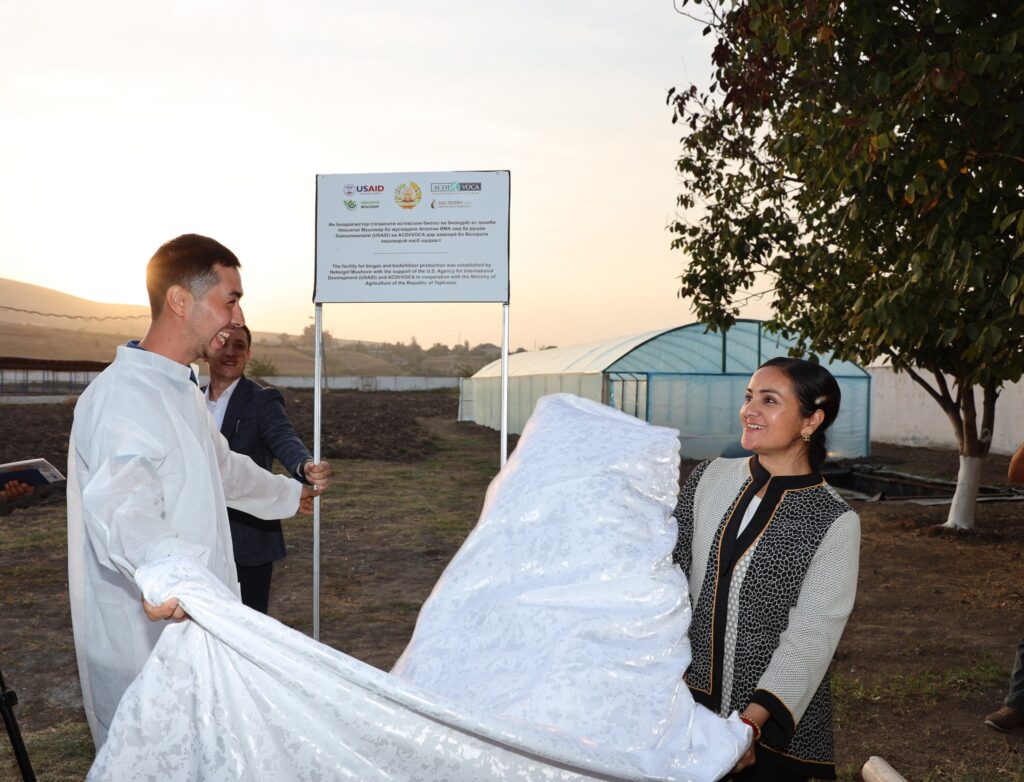
“We used to haul manure away at a cost,” said Ibodullo Rajabov, manager of Zira Dairy Farm in Rudaki, in the central part of the country. “Now, we process it and use it on our lands. It’s no longer a burden—it’s part of our business model.”
Elevation: From Eight to Everywhere
The success of these initial installations has sparked widespread interest. Recognizing the transformative potential, MDRD is committed to further expanding the initiative, offering a sustainable solution that reduces the burden on women, enhances rural livelihoods, and mitigates environmental impact.
Following MDRD’s success, other international organizations have stepped in to fund additional biodigesters. By the end of 2025, dozens more rural households will benefit from this technology.
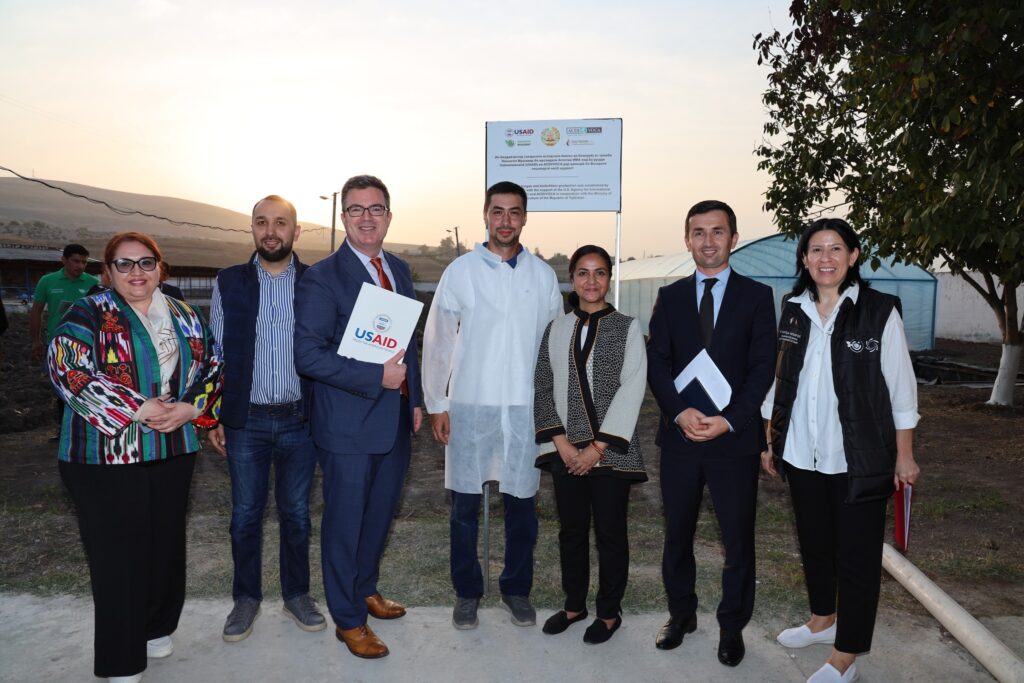
This isn’t just a pilot project; it’s a blueprint for national change. As Behruz Uzoqov, a climate-smart agriculture and environment advisor for MDRD, said, “The story of our biodigesters reminds us that sometimes, the simplest solutions—like turning manure into opportunity—can yield the most profound results.”
Learn more about our work in Tajikistan.
Learn more about the MDRD Activity.



